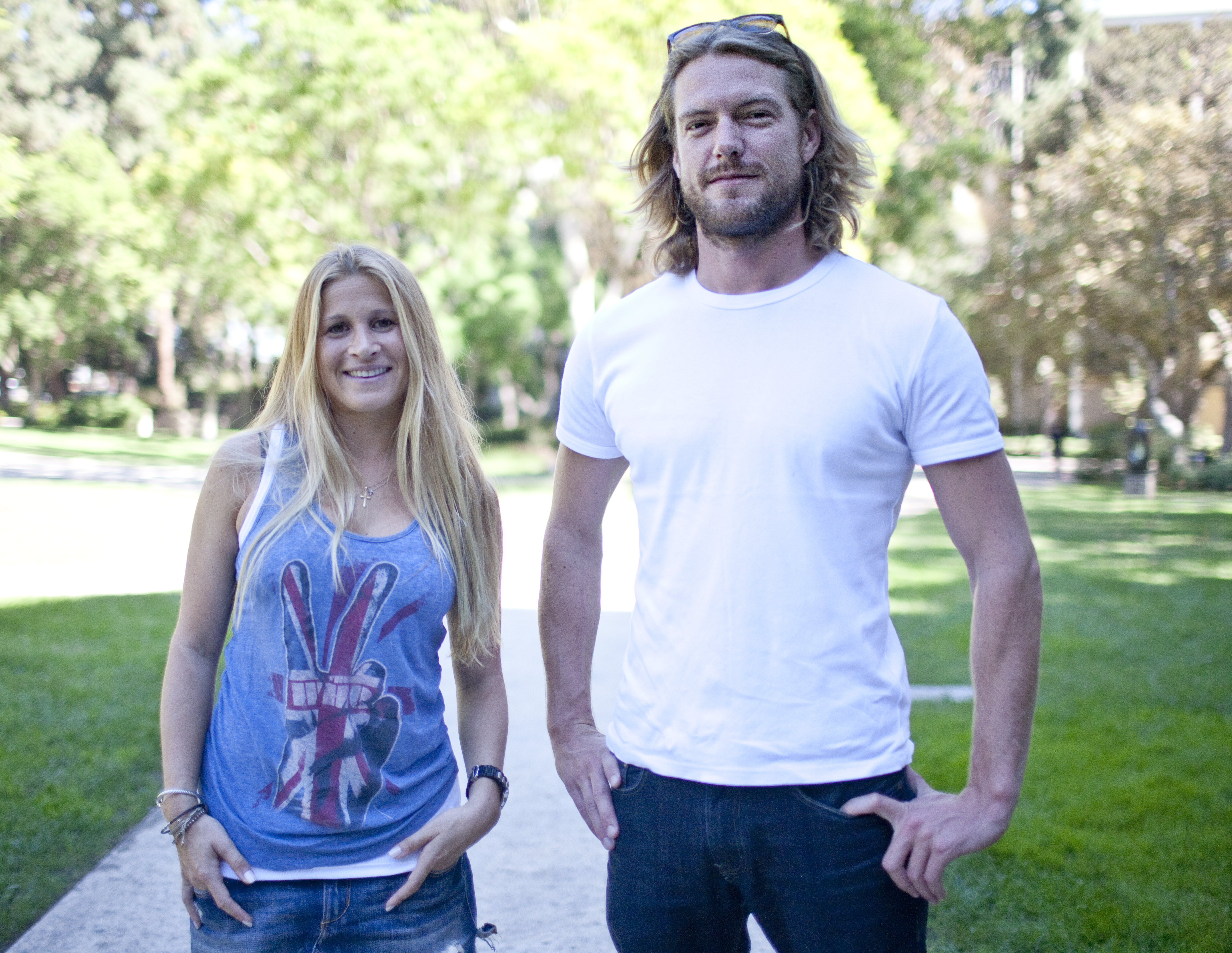While writers joke on the surface about creating works with selling points of sex, violence and humor, underneath they preach a different message of writing thoughtful, personal stories. The three UCLA finalists in this year’s Samuel Goldwyn Writing Award follow in suit as they brace themselves for the possible win.
Marissa Matteo, Stephen Wolf and Alaric Smeets, all students in UCLA’s MFA program for screenwriting, were selected as three of five finalists in the running to win the prestigious honor. In addition to a $15,000 prize, the winner also receives huge acclaim within the industry. Previous finalists and winners include fellow Bruins Francis Ford Coppola (“The Godfather”), Scott Rosenberg (“Con Air”) and Eric Roth (“The Curious Case of Benjamin Button”).
While the finalists’ scripts all differ in genre and subject, one element remains the same at the core: they all tell compelling stories. Rorri Feinstein of Goldwyn Pictures explains that for the judges, a good narrative in a script is a greater force than box office appeal.
“What we’re looking for in a winning script is a great story. Evidence of imagination, of craft, of someone who is able to get their vision down on the page,” Feinstein said.
Matteo pulls from her childhood as she follows in Coppola’s footsteps with her Mafia-based drama. Her script, which details a power struggle between two mafia kingpins, is told through the eyes of their shared mistress.
Matteo said that, growing up in a big Italian family in New Jersey, she was surrounded by women who weren’t as naive and had more moxie than the ones she saw in “The Godfather” and “Goodfellows.” She also watched a lot of women lose themselves to men, which provided the nugget of inspiration for her screenplay.
“There’s this one line in my script, “˜Once upon a time I was going to be somebody and then I met a man,’ and I just know so many women that were going somewhere, but then they met a man and their paths veered,” said Matteo.
Like Matteo, Smeets channels his background to communicate common themes of memory and identity. He said these nagging themes are a product of his origins in Curacao, a Dutch island off the coast of Venezuela.
“In all of my writing there are always questions of identity. I grew up on a very multicultural island. We have 130,000 people living there with 52 plus nationalities, every major religion is represented, all shades of color,” said Smeets. “I grew up there and being the minority from the Dutch parent country, I was always questioning my identity.”
Coming up with good writing material is half the battle, getting it on paper is a considerably more difficult task. For both Matteo and Smeets, the combination of approaching deadlines and a natural tendency toward procrastination created a window of time-sensitive pressure, which allowed them to put forth their best work.
“I actually submitted another script that I had worked on and obsessed about for two weeks and I had everything down: the structure, every bit of dialogue, not a single typo,” said Matteo. “But then I opened up this script that I hadn’t looked at in a while and I wrote an ending for it and submitted in the eleventh hour. That’s the one that ended up getting picked.”
Wolf’s process seemed to have more of a flow, as he relies on history and research to guide his writing. Although he originally worked for an ad agency on the show “Mad Men,” he said he wasn’t satisfied because the job didn’t allow him to focus on the deep past-inspired narratives he prefers. Usually a little germ from a biography or an old record inspires possible characters and conflicts.
From there everything slowly comes together. Wolf describes the process by alluding to Michelangelo.
“It’s like Michelangelo said, “˜sculpting is easy, you just take a block of marble and chip away the pieces that aren’t the sculpture,'” said Wolf. “After a lot of perseverance, blood, sweat and tears, your story turns into a script.”
Wolf also said that the most helpful part of the writing process is to have others read his work. Matteo said she often has her four brothers and sisters read her work for this very reason. Smeets, in agreement with the other two, concluded that this is the greatest lesson UCLA has taught him.
“I have always been very protective of my work because of fear of exposure and of criticism, but the main lesson so far is sharing my work with fellow students because that’s what I’ve learned the most from “¦ Don’t be afraid to share your work with people you trust and just listen,” Smeets said.
While winning the award could mean making a big break into the industry, each of the writers echo a common message of writing for themselves and learning from the other talented people around them. Wolf explains that this is the reason he left his prestigious position working with “Mad Men” and plans to continue his education at UCLA.
“I realized I had deeper stories, and more interesting stories, and more meaningful stories to tell and what I was doing just wasn’t cutting it,” said Wolf. “As gratifying as it is to see my work go out into the world and get accolades in the industry and among my peers, I’m just a writer among many talented writers and we’re all in this together.”
